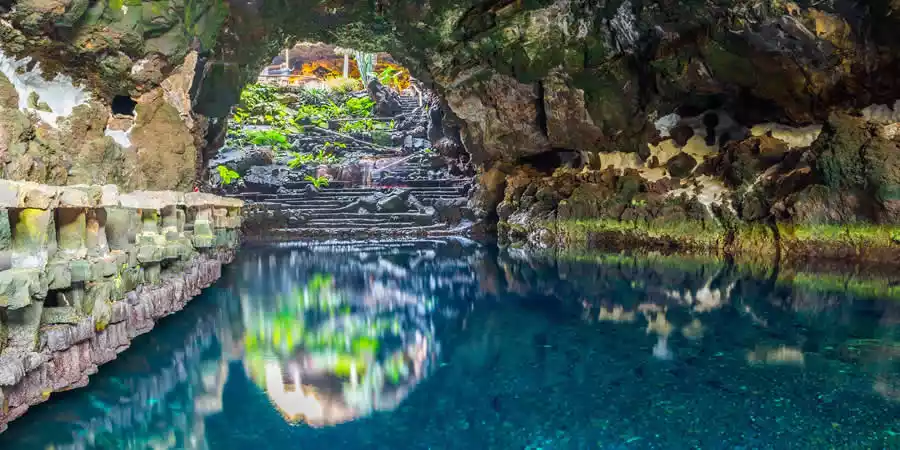
The Jameos del Agua is a Site of Scientific Interest located in the municipality of Haría, in the northern part of Lanzarote. With an area of 30.9 hectares, this site was initially declared as part of the La Corona Volcano and Malpaís de La Corona Natural Park in 1987 and later reclassified in 1994 as a Site of Scientific Interest.
This space stands out for its exceptional natural beauty, particularly due to its impressive volcanic tubes formed by the eruption of the Corona Volcano. These volcanic tubes are unique because their roofs have collapsed, allowing light to enter, creating the Lanzarote-specific term "jameo". In some of these jameos, the water from the sea has flooded the tubes, creating an interior lagoon, which is home to unique species, such as the tiny blind white crab (Munidopsis Polymorpha), an endemic species found nowhere else in the world.
The site also hosts other endemic and exclusive species, such as Spelenoectes ondinae, contributing to its scientific value. The exceptional ecological and biological features of the Jameos led to the space being recognized by the European Commission as a Site of Community Importance. It is also considered an Area of Ecological Sensitivity under Law 11/1990 on the Prevention of Ecological Impact.
Declaration: This area is part of the Natural Park of the Volcán de La Corona and Malpaís de La Corona, which was declared by Law 12/1987 on June 19. It was later reclassified as a Site of Scientific Interest by Law 12/1994 on December 19.
Ecological Sensitivity: By definition, this space is considered an area of ecological sensitivity according to Law 11/1990, on the prevention of ecological impact.
Municipality: Haría.
Area: 30.9 hectares.
Population: The area houses tourist facilities that receive a high influx of visitors throughout the year, making it a popular tourist destination.
The Jameos del Agua is a highly protected and scientifically valuable space, drawing attention for its unique ecological features and geological formations. It is an essential part of Lanzarote’s natural heritage.